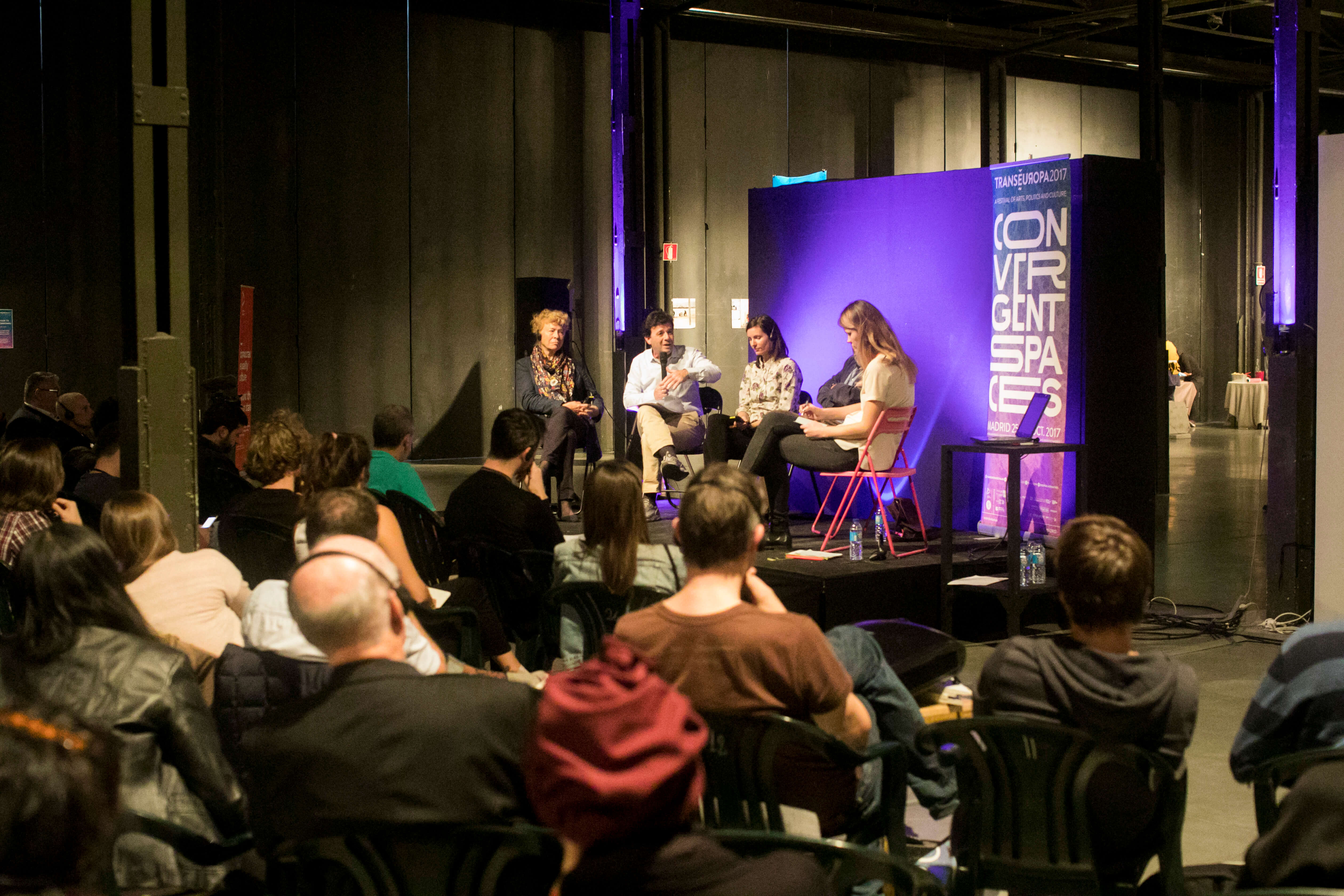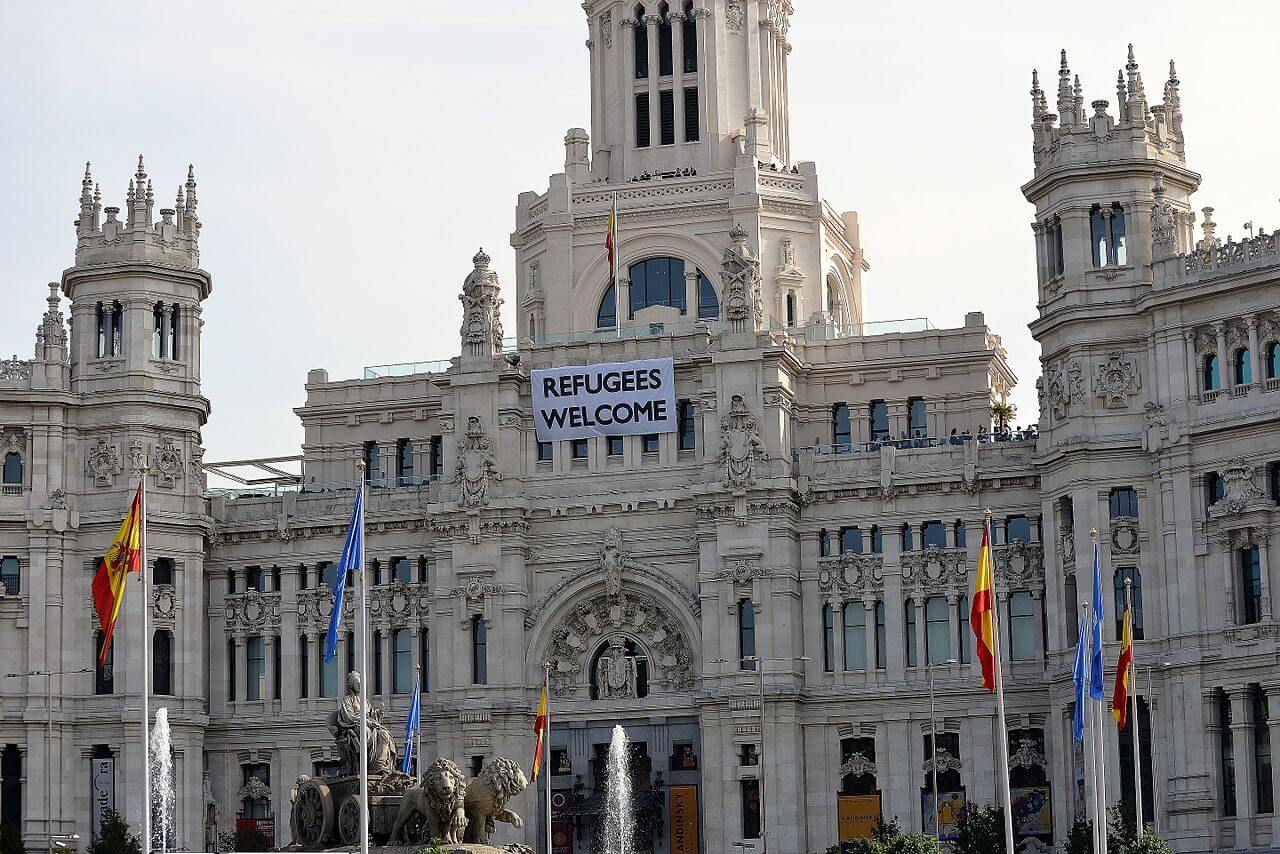*The following is an edited transcript of an interview conducted for European Alternatives’ forthcoming documentary, Demos: Solidarity in Europe.
Over the past years, European citizens have seen a failure of transnational solidarity in the European Union. In the year 2015 two things happened at the same time: structures for solidarity with Greece failed, and solidarity structures in Germany also failed, at a time when the country was opening its doors to a million Syrian refugees and Europe was turning its back to a European refugee policy – in this sense it was also a failure of transnational solidarity. Can cities become a space for a new European conception of transnational solidarity? We spoke with Gesine Schwan, German politician and professor, who has a very concrete proposal to make it happen.
European Alternatives: There seems to be a trend towards fragmentation in the European Union: we’ve seen it with Brexit, with the rise of right wing forces, we have seen it more generally with a trend towards renationalisation, from East to West. We wanted to start by asking you: how do you read this trend of renationalisation of the European Union, and how do you think we can go beyond this, offering, instead, a perspective of unity that matters to people and that is convincing to people.
Preaching the moral of solidarity is certainly necessary but not really effective. I think solidarity is possible if you know these ‘others’ and have this proximity with others that allows to understand their situation.
Gesine Schwan: I think this trend for renationalisation is one type of fragmentation, and it’s due to several causes. One cause is the whole tendency of cultural neoliberalism, which we saw at work in the Treaty of Maastricht, in the form of competition between states as places for capitalist investment. This means that in addition to traditional conflict, which characterizes European history, there is now economic conflict, caused by competition for capital investment. This is certainly one tendency, in line with the idea that, in general, the market is the main actor, not the state or common goods policies, and I see this idea as the basis for fragmentation. But another source of this fragmentation is the tendency of the market to ignore people’s needs for self-determination and participation, and this was underestimated and negated. So I think that part of this need for autonomy, which leads to fragmentation, is actually part of this people’s will to participate and control their environment. The third point is also related to the main economic thinking, which increasingly underestimates solidarity. In the German discussion, very often in the context of neoliberalism, solidarity was understood as ‘self-responsibility’, which is undermining. The term ‘self-responsibility’ by definition undermines the concept of solidarity, because responsibility normally means that I’m responsible for myself, but ‘self-responsibility’ means that one should no longer expect solidarity from the state or from others, that one should act in one’s own name, and this means undermining solidarity. So there are several cultural points that come together. But indeed, I think that preaching the moral of solidarity is certainly necessary but not really effective. I think solidarity is possible if you know these ‘others’ and have this proximity with others that allows to understand their situation. And this, I believe, is behind the trend for smaller entities of political life and also of daily life and of self determination.

European Alternatives: How do you think we can re-launch a process of solidarity in the European Union connecting it to the demand for greater autonomy at the level of proximity that you mention? Is it possible for cities to become a locus for a new European conception of transnational solidarity?
Gesine Schwan: Yes, I think so. And I would also add that these two versions of solidarity, with Greece and with Germany, have failed in two different ways. Germany was in a position of responsibility for several years in the European Union, and didn’t promote solidarity, from my point of view. They did not show any solidarity with Italy or Greece, not only because of economical issues, and this, in fact, became evident with the refugee questions. I also think that together with the development of neoliberal culture, there is another development concerning political dynamics on the national level, which have become more and more frustrating, because at a state level, people are increasingly thinking in terms of “power acquiring” and “power keeping” categories, and not in terms of solutions to be found in order to solve problems. So I do think that municipalities and cities have a different approach to daily problems and that, therefore, they are more interested in identifying solutions to the problems. I would say this encourages a form of thinking, which does not totally underestimate competition between parties, but focuses on common solutions. In my opinion the fact that at this level competition between parties is less strong, together with the fact that daily problems are, on the other hand, strongly felt and have a lot of impact, helps to make cities the new arena of political, social and technical innovation. In a way, also at the beginning of the national states system cities were at the core of national development, so perhaps we will go back to a system based on the municipal, regional and global level, to the detriment of national states. I can imagine this taking place, and presently, in fact, the state level seems to be delivering a kind of compensation for the lack of control and democratic participation, in the form of a nationalistic belonging, and this is a very bad and dangerous substitute. I would prefer to strengthen participation at the municipal level, and then also give municipalities an international dimension by means of coordination and solidarity solutions.

European Alternatives: Indeed the municipal level is often a space where citizens’ protagonism takes centre stage. Especially in some new municipal experiences. In Spain, notably, we’ve seen a great emphasis on direct participation of citizens in the management of common goods, of urban regeneration, in the management of refugee welcoming initiatives that are often run in cooperation with the institutions of the city and NGOs, volunteers, social movements that aid the city. At the same time, what you are also hinting at, is that we need to prevent ‘locality’ from becoming ‘localism’, something detached from the wider global or European flow of information and capital. In fact, the big challenges clearly bypass the national, but also the urban space. And so building a transnational interconnection between municipalities, to create another level of European governance, which may perhaps run parallel to that of the states and to that of the citizens through the European parliament, is something that is being discussed by many people. You have a very concrete proposal on how to connect a challenge posed at a European level, such as welcoming refugees, with the local dimension of municipalities. Perhaps you can tell us something about this?
My proposal was to create a European fund that municipalities could benefit from, in order to welcome refugees, a way to finance integration, but also a way to access additional funding for their own development.
Gesine Schwan: It was very frightening to see the lack of solidarity in the welcoming of refugees. Not only solidarity with the refugees, but also solidarity between nation states; caused by mechanism and dynamics which distracted politicians from finding solutions. So my proposal was to create a European fund that municipalities could benefit from, in order to welcome refugees, a way to finance integration, but also a way to access additional funding for their own development. Today we are witnessing a bad kind of competition between the poor living in cities who don’t have houses etc., and the poor who arrive to the city. So, because we need investment without corruption, I see the possibility of strengthening municipalities, by creating multistakeholder groups organizing civil society, which is already much more organised and committed at the city level, in order to plan strategies for the development of the city combined with strategies for the integration of refugees. These groups would apply for European funding. This model would also mean more participation on the part of citizens taking part in such committees, and at the same time a more direct involvement in the European Union, that already gives a lot of money to cohesion funds, although people don’t perceive this because they are not involved in the decision making processes. If this money were to be given directly to the municipalities, people could actually see that they have the opportunity to develop their cities and do this in a participatory way. What is also evident today is that we have no networks connecting cities and towns, which could, on the contrary, help each other and share experiences of integration of refugees. During this process of integration, in fact, municipalities gain a firsthand experience of – for example – the African community fleeing from war: in this sense such initiatives are able to combine the local and the global level, providing experiences and knowledge, and this would be very helpful.
European Alternatives: Yes indeed, again in Spain, we see giant banners that say “refugees welcome” in the town hall of Madrid or Barcelona, and yet neither cities can welcome those refugees because the national government rejects the relocation scheme that the EU has in theory agreed to. So we witness this odd geometry where cities try to respect a European regulation that often the nation state is boycotting: maybe we need to get a bit creative about reformulating competences within the EU in order to “take back control”.
Gesine Schwan: Yes exactly, and when you say ‘creative’ it is exactly what I expect from cities, to be creative. Today, from the legal point of view, it is the national government that has to decide whether refugees are allowed to enter the nation state or not. We have to put political pressure on the nation state to give some of this legal competences also to municipal bodies, or at least allow them to take in refugees voluntarily. This would also help the national governments, because at present they are not willing to welcome refugees, they are afraid of doing so, but if they allowed municipalities to decide voluntarily, this would create a form of support that would work in the long term, at a national level. The fact is, governments have problems with this “long term thinking”, something that is absolutely necessary and is also expressed by the very common term ‘sustainability’, used in all fields today – think of the sustainability goals the UN have agreed to in 2015. This line of reasoning points in the right direction, and we need to put political public pressure on national governments, so they may understand that it is in their own interest.
![Political Critique [DISCONTINUED]](http://politicalcritique.org/wp-content/uploads/2015/09/Political-Critique-LOGO.png)
![Political Critique [DISCONTINUED]](http://politicalcritique.org/wp-content/uploads/2015/09/Political-Critique-LOGO-2.png)